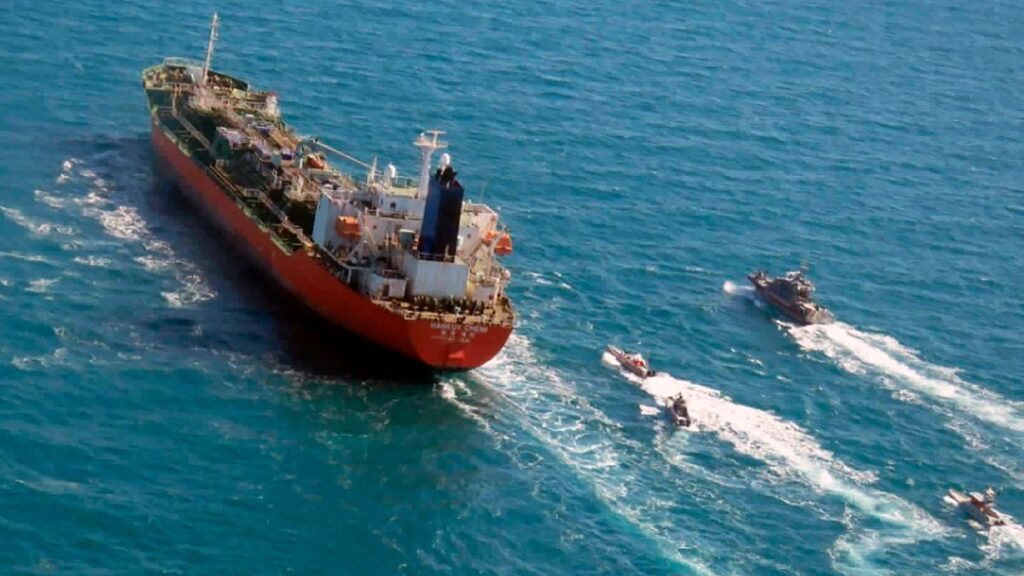Revolutionary Guard commander Sardar Esmail Kowsari told local media in an interview closing the Strait of Hormuz “is under consideration, and Iran will make the best decision with determination.”
“Our hands are wide open when it comes to punishing the enemy, and the military response was only part of our overall response,” added Kowsari, who is a member of parliament in addition to his military position.
Iran’s short- and medium-range missiles would be capable of targeting oil infrastructure platforms, pipelines in the Strait, or even attacking commercial vessels, and surface-to-surface missiles could target tankers or ports along the Gulf. Airstrikes using aircraft and drones could disable navigation or radar equipment at major shipping ports in the region.
Unmanned drones like Iran’s Shahed models could potentially be used to attack specific shipping lanes or infrastructure in the Strait. Iran could attempt to deploy warships to physically block access to the Strait. In 2012, Iran launched a cyberattack on Saudi Arabia’s oil industry, showing its growing capability in this domain.
The Strait of Hormuz is one of the most strategically vital chokepoints in the world, and any blockade by Iran would pose serious risks for Europe.
Blocking the Strait was one of four Iranian responses to the conflict including terrorist acts on mainland Europe which security expert Claude Moniquet cited in an interview with Euronews.
It would be “a disaster for Europe”, the former French intelligence office said.
Here are some of the reasons why.
Threats to energy security
Roughly 20% of global oil and a significant portion of natural gas pass through the Strait. Europe imports oil and liquefied natural gas (LNG) from Gulf states Saudi Arabia, Qatar, UAE much of which travels through the Strait. If Iran blocks it, global oil prices would spike, and Europe could face energy shortages, especially in countries dependent on Middle Eastern fuel.
Economic shock
A sudden oil price surge would increase inflation, energy costs, and disrupt industries across Europe. Manufacturing, transport, and agriculture sectors would be especially vulnerable. Market reactions and volatility in European stock exchanges could be a knock-on effect.
Security & military escalation
A blockade could trigger military confrontations involving the US, EU navies, and Gulf states, risking a broader regional war. Europe might be drawn into the conflict through NATO obligations or alliances, especially with countries like France or the UK maintaining naval presence in the region.
Shipping and trade disruptions
Beyond oil, the Strait is a key route for global shipping. Disruption could delay European imports of raw materials, electronics, and consumer goods, affecting supply chains. Insurance premiums for shipping could spike, raising costs for European businesses and consumers.
Read the full article here
